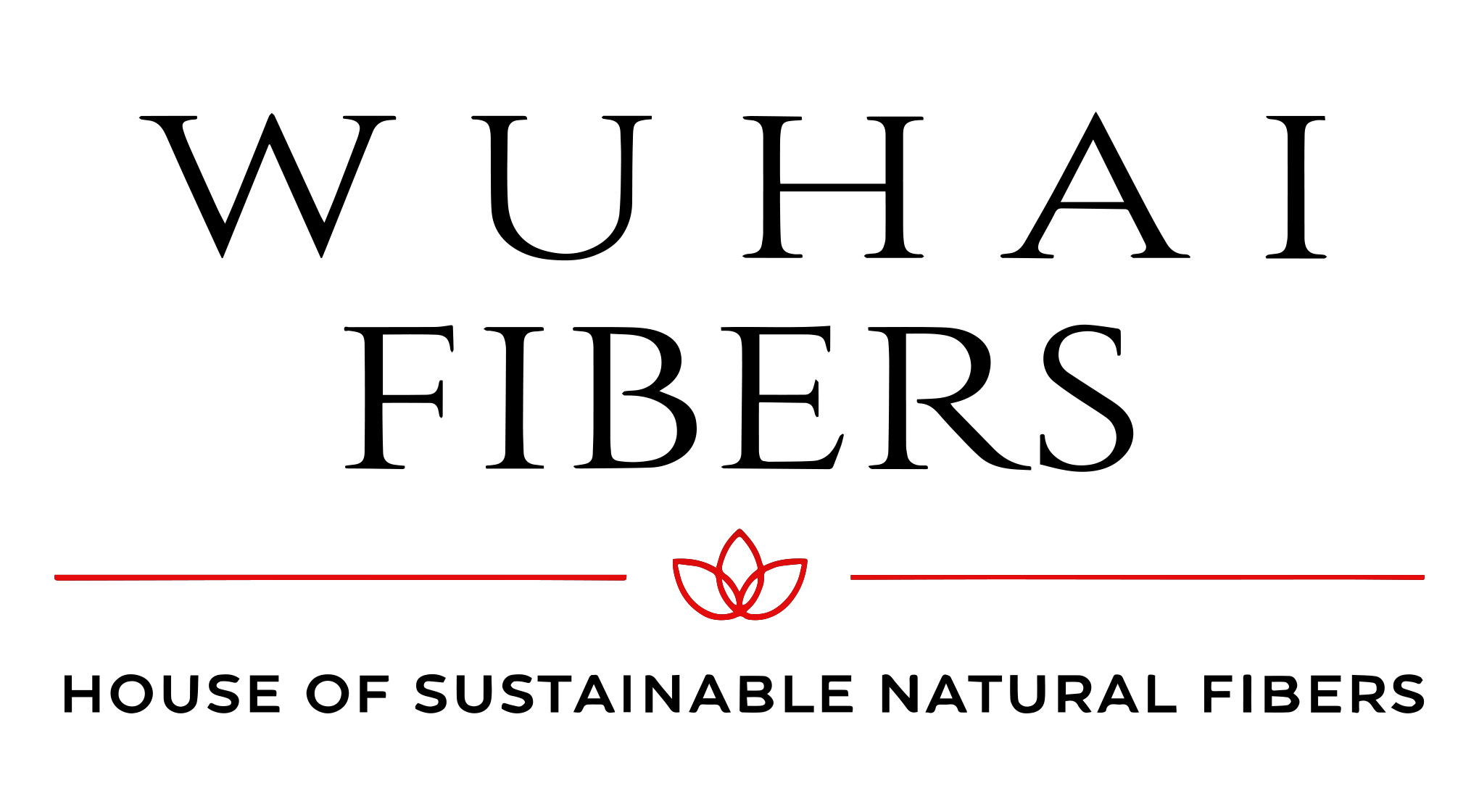What is Cottonized Banana Fiber?
Cottonized Banana Fiber is extracted from the pseudostems of the Banana Plant (Musa Ssp.). The fiber is mechanically processed to remove unwanted elements, and the cottonization process makes it easier to spin into yarn. The result is a fiber that shares the best properties of both cotton and traditional banana fiber—soft, durable, and eco-friendly.
Key Features:
- Physical Properties: Strength, elasticity, weight, texture, and other characteristics that define the fiber’s suitability for use
- Chemical Properties: Resistance to chemicals, moisture absorption, biodegradability, etc.
- Eco-friendly: Wuhai Fibers banana fibers are completely natural, harvested from banana trees without causing harm to the environment. No chemicals or pesticides are used in the process, making it safe for both workers and the planet.
- Soft Texture: After the cottonization process, the fiber becomes softer and more pliable, making it more suitable for weaving and knitting into textiles like shirts, dresses, and home textiles.
- Sustainably Sourced: Banana plants are fast-growing and can be harvested multiple times per year. The fibers are extracted from the pseudostems of banana plants that would otherwise go to waste after the fruit is harvested, making the process highly renewable and efficient.
- Durable and Strong: Banana fiber is naturally strong and durable, making it ideal for creating long-lasting textile products.
- Biodegradability: Cottonized banana fiber is fully biodegradable. Unlike synthetic fibers, which can take hundreds of years to decompose and contribute to micro-plastic pollution, banana fibers break down naturally, leaving no long-term environmental impact.
- Reduced Soil Erosion: Banana plants help prevent soil erosion because of their large root systems. This makes banana farming less damaging to the land compared to some other crops, which may deplete soil quality or contribute to erosion.
- Lower Carbon Footprint:The carbon footprint of cottonized banana fiber is generally lower than that of other natural fibers, such as cotton or silk. The farming and production of banana fiber typically require less land, water, and pesticides, and its mechanical processing further minimizes energy consumption compared to chemical-heavy alternatives.
Technical Specifications:
- Fiber Diameter: Typically ranges between 10-20 microns in diameter, providing a fine texture while maintaining durability.
- Tensile Strength: Banana fiber has high tensile strength, making it one of the strongest natural fibers. Its resistance to breaking or stretching under tension makes it ideal for durable textiles.
- Elasticity: The fiber exhibits good elasticity, which allows textiles made from banana fiber to retain their shape and form even under stress or after multiple washes.
- Moisture Absorption: Banana fiber has excellent moisture absorption properties, making it breathable and comfortable for wear in various climates.
- Thermal Insulation: It provides natural thermal insulation, keeping the body cool in warm climates and offering comfort in colder weather.
- Lightweight: Despite its strength, banana fiber is lightweight, which is ideal for producing garments and fabrics that are comfortable without being too heavy.
- Colorfastness: Retains color well when dyed, allowing for vibrant, long-lasting hues.
- Biodegradability: Fully biodegradable, banana fiber decomposes naturally, ensuring that products made from this material leave no long-term environmental impact.
- Smooth Surface: The cottonization process enhances the smoothness of the fiber, improving its compatibility with spinning and weaving machinery.
Applications:
Cottonized Banana Fiber is versatile and can be used in various textile applications, including:
- Yarns: Perfect for spinning into fine and thick yarns, suitable for knitting and weaving.
- Fabrics: Ideal for making soft, breathable, and durable fabrics used in clothing, home textiles, accessories, and more.
- Blended Fabrics: Can be blended with other natural fibers such as cotton, wool, or silk, offering a unique texture and enhancing the sustainable quality of the final product.
- Technical Textiles: Suitable for use in eco-friendly industrial applications, including eco-friendly bags, mats, ropes, and more.
Advantages Over Synthetic Fibers:
- Environmental Benefits: Unlike synthetic fibers, which are derived from petroleum and are non-biodegradable, Cottonized Banana Fiber is biodegradable and renewable. The production process uses no harmful chemicals, making it safe for the environment.
- Health Benefits: Free from synthetic additives, dyes, and chemicals, the fiber is hypoallergenic and skin-friendly, making it ideal for sensitive skin.
- Aesthetic Qualities: The fiber has a naturally elegant and appealing texture, which can enhance the overall feel and look of fabrics compared to synthetic fibers.
Sustainability Credentials:
- Chemical-Free Processing: The mechanical cottonization process eliminates the need for harmful chemicals or toxic treatments.
- Eco-Friendly: Sourced from banana plants, a renewable resource, and produced with minimal environmental impact.
- Biodegradable: Cottonized Banana Fiber is 100% biodegradable, ensuring that it will not contribute to long-term pollution.
- Water Conservation: The fiber is produced with minimal water usage, making it an eco-friendly alternative to cotton and other water-intensive fibers.
By choosing Our Cottonized Banana Fiber, you are investing in a sustainable, high-quality material that
offers unparalleled strength, comfort, and versatility. Our fiber not only helps reduce environmental impact
but also ensures that your products are made with the highest standards of quality, performance, and
sustainability. Whether you are creating fashion, home textiles, or functional fabrics, Cottonized Banana Fiber offers endless possibilities.























